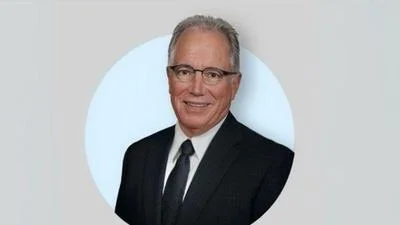Congressman Andy Barr | Rep. Andy Barr Official U.S. House headshot
Congressman Andy Barr | Rep. Andy Barr Official U.S. House headshot
Mr. Chopra: Thank you, Chairman Barr, for the opportunity to appear before you. I look forward to your questions.
Congressman Barr: Thank you Director, and I’ll now yield myself five minutes to ask some questions. As an FDIC board member, you were involved in the decision-making related to Silicon Valley Banking and its resolution. During the weekend of March 9th did you express any views to FDIC chairman Gruenberg, any member of the FDIC Board of Directors, any FDIC staff, or officials in the administration regarding the class of banks that should or should not be considered as a viable buyer.
Mr. Chopra: No. In a bank failure particularly, the most efficient way to contain any fallout is to ensure there is continuity. The Bank Merger Act specifically talks about financial stability. It was important if we had a viable buyer.
Congressman Barr: Did you express an opinion that a large Wall Street too-big-to-fail bank should not be in the class of institutions that would be eligible to purchase the bank?
Mr. Chopra: I think we would’ve taken any potential buyer. We did not receive a bid.
Congressman Barr: Okay. I appreciate your answer and I ask because when you were FTC Commissioner, you submitted a comment to the DOJ on bank mergers criticizing those that occurred during the 2008 financial crisis. You opined: “Policy makers compounded the damage by orchestrating several more mega mergers forming even bigger banks.” We also know you used procedural games in December 2021 to try to force a bank merger process review. Did you see the Silicon Valley bank failure as an opportunity to take your personal views on “mega mergers” and implement them in a real-world crisis?
Mr. Chopra: No. What you’re referring to when I talk about when there was tremendous government assistance, it was a different situation. We were faced with one of the fastest bank failures in history.
Congressman Barr: Director, one more time, one more time, did you in any way try to influence the FDIC’s analysis of the bids?
Mr. Chopra: We did not receive any bids that weekend for Silicon Valley Bank. We sought to get as many bids as possible. The FDIC’s law required minimizing costs to the Deposit Insurance Fund and that’s what we did.
Congressman Barr: Well in your role on the FDIC, and we talked a little bit about this offline, some healthy mergers can avoid losses to the DIF. I want you to take that back to Chairman Gruenberg. And we need a better merger process to avoid losses to the DIF and we can talk about that further. Director Chopra, in your new Abuse of Acts and Practices policy statement, do you include the following as fitting into what will now be considered abusive and a violation of consumer financial law? And I’ll ask that you answer yes or no. A pop-up or drop-down box.
Mr. Chopra: I don’t believe that by its own is-
Congressman Barr: Okay. Multiple click-throughs?
Mr. Chopra: I don’t believe that by its own is in violation. I think that was used as a series of examples to look at material interference.
Congressman Barr: What about consumer confusion?
Mr. Chopra: Well, that is part of the statutory-
Congressman Barr: What if it’s unreasonable consumer confusion?
Mr. Chopra: Unreasonable on the part of the consumer?
Congressman Barr: On the part of the consumer.
Mr. Chopra: That would not be the issue. That would not meet the statutory standard. The standard has two prongs with some sub-prongs: One is material interference with the consumer’s ability to navigate, and the second is taking unreasonable advantage.
Congressman Barr: What about customer support taking too long? Is that abusive?
Mr. Chopra: Is that in the proposed policy statement?
Congressman Barr: See, your confusion is the problem. Nobody knows what abusive is, we still don’t. If you don’t know, and you’re the director, and you issued a guidance-
Mr. Chopra: No, I do. We have sought in the proposed policy statement to summarize all of the supervisory actions by state and federal law as well as enforcement to say, “This is the body of law we have. We have a common law system in the United States, and we are seeking to provide as much clarity, to be responsive to-
Congressman Barr: Just because I have limited time, these are examples that you say that you’re listing and you can’t tell me whether or not these examples constitute abusive. And complying with these new additions, these examples to the abuse of prong, mean that companies will now have to change the way they present information or manage customer services. This means that these institutions have new obligations and you’re not following notice and comment rulemaking and you’re imposing new requirements on these by listing these-
Mr. Chopra: We disagree with that-
Congressman Barr: Well, I know you do. If it’s not new requirements, here’s the problem: It’s kind of life the Supreme Court Justice Potter Stewart in 1964 when he was asked to describe his test for obscenity. He said: “I know it when I see it.” This vague and ill-defined guidance on what abusive means under UDAAP sounds a lot like Justice Stewart’s test for obscenity. Abusive is whatever you say it is.
Mr. Chopra: It is not and what we have done is... Congress wrote the words; it’s in statute. We have tried our very best to be able to articulate with fidelity to those words to give examples. In fact-
Congressman Barr: My time has expired. You tried but, respectfully, I think you failed. Nobody knows what it is... it’s what you say it is, and that’s the problem. My time has expired. The gentlewoman from California, Ms. Waters, is recognized.
Original source can be found here.






 Alerts Sign-up
Alerts Sign-up